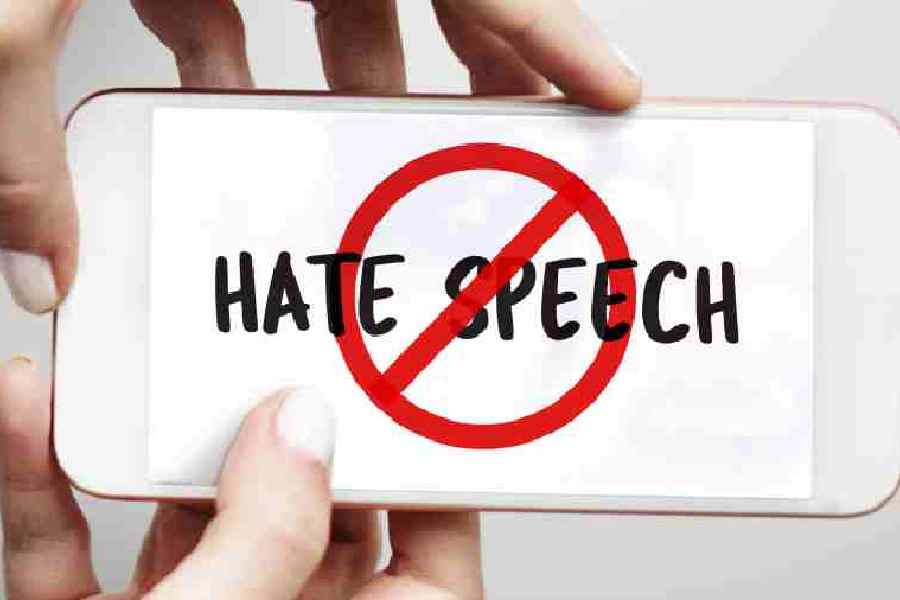Cometh elections, cometh the fangs spewing venomous speech. The deplorable remark made by the Bharatiya Janata Party leader, Suvendu Adhikari — Muslim lawmakers, he said, would be thrown out of the assembly forcefully after the BJP wins the next state election — needs to be seen in this context. West Bengal’s assembly polls are approaching. Mr Adhikari, as is his wont and that of his partymen, are hence at work, sharpening the edges of the polarisation card, which is a tried-and-tested electoral strategy of the BJP. A resolution brought by the Trinamool Congress against Mr Adhikari for his comment had been passed in the House. The chief minister of Bengal has accused Mr Adhikari of trying to import a fraudulent version of Hinduism to the state. But neither Mamata Banerjee’s criticism nor the House resolution is likely to make Mr Adhikari mend his ways. This is because there is a method in this madness. Data revealed by the India Hate Lab report assume importance in this context. Report 2024: Hate Speech Events in India revealed a staggering 74.4% surge in incendiary speeches in 2024, mostly by leaders of the BJP and its affiliate organisations. Tellingly, there was a sharp spike in such offensive comments during the electoral season; this goes to show that far from being merely a tool of ideological dissemination or a spontaneous outburst, hate speeches have been weaponised as a tactical tool for electoral mobilisation by the BJP.
What is even more worrying is New India’s receptivity to such poisoning. That communal vilification, spread by political representatives of India’s ruling regime and amplified by social media, has been internalised in the nation’s body politic in recent years is an undeniable truth. This would not have been possible without public passivity, nay complicity. The occasional reprimand from the judiciary has not worked as a deterrent either. Ms Banerjee’s distinction between the spurious — rabid — form of Hinduism from the original, pluralist faith has, unfortunately, few takers at the moment. This is because the line between political Hindutva and Hinduism as a religion has been blurred by the saffron ecosystem. The nation’s redemption lies in the possibility of stakeholders — political parties, citizens, institutions — resurrecting that border and, this time, making the line hold.










